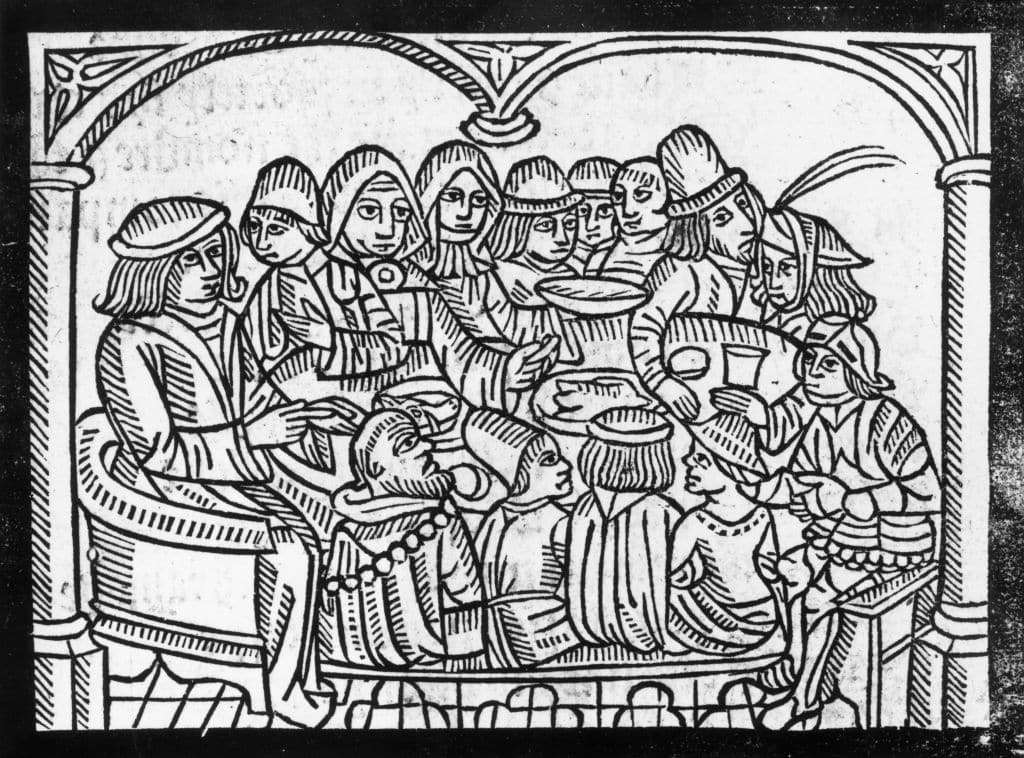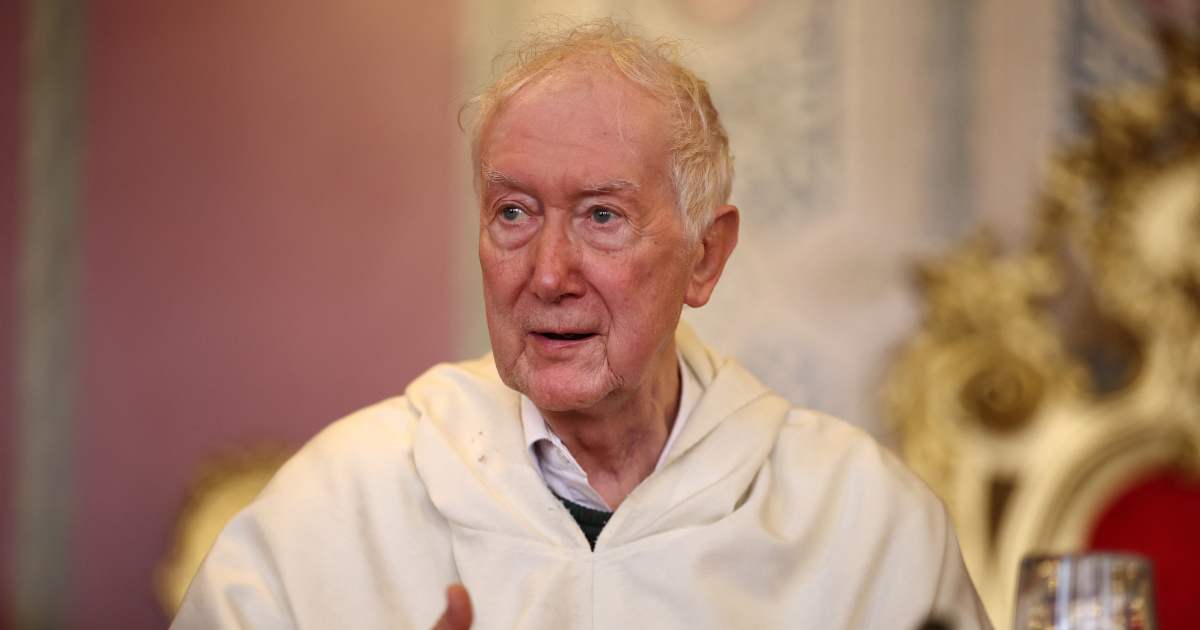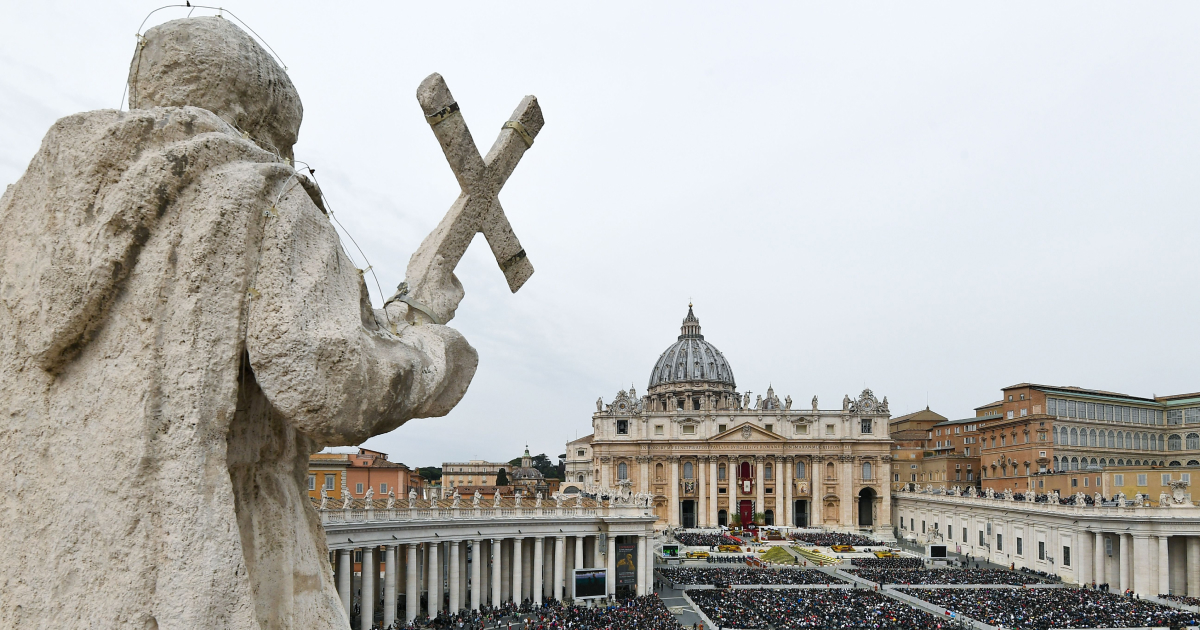It has been revealed that a so-called trigger warning has been applied to Geoffrey Chaucer’s The Canterbury Tales by a leading UK university due to concerns about the 14th-century book's "expressions of Christian faith" and how those might affect students today.
A Freedom of Information request revealed that the University of Nottingham put the warning on the medieval collection of 24 tales that tell of pilgrims going to Canterbury Cathedral to visit the shrine of Saint Thomas Becket, reports the Daily Telegraph.
The university has deemed it necessary to warn students that the iconic collection of stories, representing one of the earliest and most quintessential representations of pilgrimage in the English literary canon, contain expressions of the Christian faith alongside expressions of "violence and mental illness".
“From what point in history are we going to censor literary texts given most are steeped in a Christian world view?” says Andrea Williams, chief executive of Christian Concern. “Trigger warnings for Christian themes in literature are demeaning to the Christian faith and stifle the academic progress of our students."
She argues that “without an understanding of the Christian faith there will be no way for students to access the world of Chaucer and his contemporaries”, and that "to censor expressions of the Christian faith is to erase our literary heritage".
She adds: "True education engages and fosters understanding, not avoidance. Our universities should allow students, who have chosen to study some of the greatest works in English literature, the freedom of academic thought to make up their own minds rather than planting loaded warnings about the Christian faith.”
While the stories also contain explicit references to rape and anti-Semitism, the university’s warning made no reference to these themes, notes the Mail on Sunday newspaper, which made the original Freedom of Information request.
“Warning students of Chaucer about Christian expressions of faith is weird," Frank Furedi of the University of Kent told the Mail on Sunday. "Since all characters in the stories are immersed in a Christian experience there is bound to be a lot of expressions of faith."
He concludes: “The problem is not would-be student readers of Chaucer but virtue-signalling, ignorant academics.”
A university spokesman told the paper that it “champions diversity”, arguing that even practising Christians could struggle with "aspects of the late-medieval world view" that are "alienating and strange”.
The judgement on Chaucer comes as an increasing number of important pieces of literature are deemed to need such trigger warnings, amid increasing counter concerns about higher education becoming increasingly stymied by left-wing woke agendas, as the principles of critical thought and academic freedom are lost, while students lose out on a genuinely open and rewarding education.
Recently, a number of universities – including Nottingham – have announced they will stop using the term "Anglo-Saxon" due to concerns over its apparent "racist" overtures.
Cambridge University Press changed the name of its Anglo-Saxon Journal to “Early Medieval England and its Neighbours”, while Nottingham university announced it was removing the term “Anglo-Saxon” from its English curriculum in an effort to “decolonise it”.
RELATED: Another attack on Britain’s Christian heritage: Don’t say ‘Anglo-Saxon’ Catholic
Photo: Pilgrims assemble at the Tabard Inn in Southwark in a scene from 'The Canterbury Tales' by Geoffrey Chaucer. A woodcut from Richard Pynson's 1492 edition. (Photo by Hulton Archive/Getty Images.)
It has been revealed that a so-called trigger warning has been applied to Geoffrey Chaucer’s <em>The Canterbury Tales</em> by a leading UK university due to concerns about the 14th-century book's "expressions of Christian faith" and how those might affect students today.
A Freedom of Information request revealed that the University of Nottingham put the warning on the medieval collection of 24 tales that tell of pilgrims going to Canterbury Cathedral to visit the shrine of Saint Thomas Becket, <a href="https://www.telegraph.co.uk/news/2024/10/13/canterbury-tales-trigger-warning-christian-faith-chaucer/"><mark style="background-color:rgba(0, 0, 0, 0)" class="has-inline-color has-vivid-cyan-blue-color">reports</mark></a> the <em>Daily Telegraph</em>.
The university has deemed it necessary to warn students that the iconic collection of stories, representing one of the earliest and most quintessential representations of pilgrimage in the English literary canon, contain expressions of the Christian faith alongside expressions of "violence and mental illness".
“From what point in history are we going to censor literary texts given most are steeped in a Christian world view?” says Andrea Williams, chief executive of Christian Concern. “Trigger warnings for Christian themes in literature are demeaning to the Christian faith and stifle the academic progress of our students."
She argues that “without an understanding of the Christian faith there will be no way for students to access the world of Chaucer and his contemporaries”, and that "to censor expressions of the Christian faith is to erase our literary heritage".
She adds: "True education engages and fosters understanding, not avoidance. Our universities should allow students, who have chosen to study some of the greatest works in English literature, the freedom of academic thought to make up their own minds rather than planting loaded warnings about the Christian faith.”
While the stories also contain explicit references to rape and anti-Semitism, the university’s warning made no reference to these themes, <a href="https://www.dailymail.co.uk/news/article-13953897/Woke-Nottingham-University-Geoffrey-Chaucer.html"><mark style="background-color:rgba(0, 0, 0, 0)" class="has-inline-color has-vivid-cyan-blue-color">notes</mark></a> the <em>Mail on Sunday </em>newspaper, which made the original Freedom of Information request.
“Warning students of Chaucer about Christian expressions of faith is weird," Frank Furedi of the University of Kent told the <em>Mail on Sunday</em>. "Since all characters in the stories are immersed in a Christian experience there is bound to be a lot of expressions of faith."
He concludes: “The problem is not would-be student readers of Chaucer but virtue-signalling, ignorant academics.”
A university spokesman told the paper that it “champions diversity”, arguing that even practising Christians could struggle with "aspects of the late-medieval world view" that are "alienating and strange”.
The judgement on Chaucer comes as an increasing number of important pieces of literature are deemed to need such trigger warnings, amid increasing counter concerns about higher education becoming increasingly stymied by left-wing woke agendas, as the principles of critical thought and academic freedom are lost, while students lose out on a genuinely open and rewarding education.
Recently, a number of universities – including Nottingham – have announced they will stop using the term "Anglo-Saxon" due to concerns over its apparent "racist" overtures.
Cambridge University Press <a href="https://x.com/cambUP_History/status/1788192243100033283"><mark style="background-color:rgba(0, 0, 0, 0)" class="has-inline-color has-vivid-cyan-blue-color">changed the name</mark></a> of its Anglo-Saxon Journal to “Early Medieval England and its Neighbours”, while Nottingham university <a href="https://www.telegraph.co.uk/news/2024/08/31/anglo-saxon-cancelled-to-decolonise-university-courses/"><mark style="background-color:rgba(0, 0, 0, 0)" class="has-inline-color has-vivid-cyan-blue-color">announced</mark></a> it was removing the term “Anglo-Saxon” from its English curriculum in an effort to “decolonise it”.
<a href="https://catholicherald.co.uk/another-attack-on-britains-christian-heritage-now-you-cant-say-anglo-saxon/?swcfpc=1"><mark style="background-color:rgba(0, 0, 0, 0)" class="has-inline-color has-vivid-cyan-blue-color"><strong><em>RELATED: Another attack on Britain’s Christian heritage: Don’t say ‘Anglo-Saxon’ Catholic</em></strong></mark></a>
<em>Photo: Pilgrims assemble at the Tabard Inn in Southwark in a scene from 'The Canterbury Tales' by Geoffrey Chaucer. A woodcut from Richard Pynson's 1492 edition. (Photo by Hulton Archive/Getty Images.)</em>


















